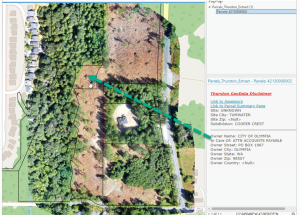At its essence Biochar is pure, black CARBON, the basis of life; the foundation of all organic matter; the ultimate sequester of carbon in soil and remover of carbon dioxide from entering the atmosphere for centuries. And the beauty of it is that it is made from waste that nobody wants and turns it, within a day, into Nature’s most wondrous filter and captor of odors and pollutants, be they in air, water or the ground.
That’s just the beginning of what biochar can do. It has myriads of uses and applications which, if turned into widespread reality, could completely transform our society and bring us into an era of true sustainability in the growing of food while simultaneously contributing substantially to reduction of global warming. Yet there are narrow-minded bureaucrats, in the pursuit of purity, who are thwarting all those blessings over a technical definition of a few words. Put another way, they lack common sense.
Biochar, which is just charcoal, urgently needs to be in widespread production at every scale from massive commercial scale to backyard gardeners with brush piles to dispose of. Done properly, using small to medium-sized “kilns,” the biochar burning of feedstock is clean-burning once it gets beyond the starting phase that does produce some smoke — as does a backyard barbeque pit which the myopic bureaucrats contend is quite okay because they don’t dare try to quash that source of air pollution. Their policies are full of contradictions regarding biochar-making. Apparently they require a permit and a public hearing for each and every biochar burn event.
Recently, I sent out an alert on SB6121, a bill that will finally allow residents to make biochar in flame-cap kilns. My alert urged people to contact Washington senators to support the bill. As of this writing (2/16/24) the bill is being favorably moved through the legislature. Our local regional air pollution authorities contend biochar kilns are no different from banned trash barrels that formerly were often used to burn plastic, paint cans, used motor oil and all kinds of trash. This equivalence obviously is invalid. Making biochar actually reduces pollution and removes CO2 from eventually entering the atmosphere as a usual consequence of the rotting of organic matter. The refusal to see the profound environmental benefit is simply flabbergasting; to say nothing of the reduction of smoke from ordinary burning of woody material as with logging slash piles and conceivably prevention of wildfires. But there are many other environmentally remedial applications for biochar. One of these is the removal of polluting nutrients and pathogens from streams and lakes that cause harmful algal blooms and excessive overgrowth of aquatic vegetation, as well as pathogenic organisms such as e. coli. This situation has reached epidemic proportions in several Thurston County lakes where, unfortunately, the outmoded band-aid “remedy” is the massive spraying and dumping of synthetic herbicides and alien chemical algaecides that are doing nothing to recover the health of the water bodies and their indigenous life forms. They do the opposite.
Black Lake, one such lake and the County’s largest lake, where I live, offers the prospect of providing an ecosystem-friendly strategy to restore the lake’s health. Assuming that strategy can be successfully demonstrated to work, it may serve as a model for use in other County lakes and even for all deteriorated water bodies around the nation.
One strategy for improving the water quality and ecosystem health at Black Lake involves the proposed use of biochar placed at the mouth of the lake’s tributaries to intercept polluting nutrients (phosphorus, nitrogen and others) so they don’t enter the lake. Once the excessive nutrients, generated from urbanized development, saturate the biochar it can be removed and put into a super compost, along with harvested aquatic vegetation, for subsequent use to improve the condition and fertility of terrestrial soils — turning a detriment into an asset.
A small group of biologists, ecologists and chemists formed Clean Black Lake Alliance (CBLA) to push for an ecosystem approach not only to clear up the lake’s water quality, but to restore its health and many beneficial uses so that people can boat and swim and safely consume fish caught in the lake. It won’t occur overnight, but our group has proposed a number of pilot projects to test their effectiveness for large-scale application. A search is underway to find grants and other funding sources to research and carry out the pilot projects.
Most recently we have started work on a website (cleanblacklake.org) where you will be able to learn about CBLA purposes and activities. If you are interested in helping out CBLA and its projects, please get in touch by going to CBLAOly@gmail.com.
What we and the whole planet need is not a banishing of biochar-making but a prodding bonanza of biochar-making and use. The new green is black carbon.
Gary L. Kline is President of the Clean Black Lake Alliance and the owner of Black Lake Organics. You can contact him at Blossomera.org.
To comment on SB 6121 supporting the use of biochar, please use this link and go to Send a comment on this bill to your legislators. Support biochar

Be First to Comment